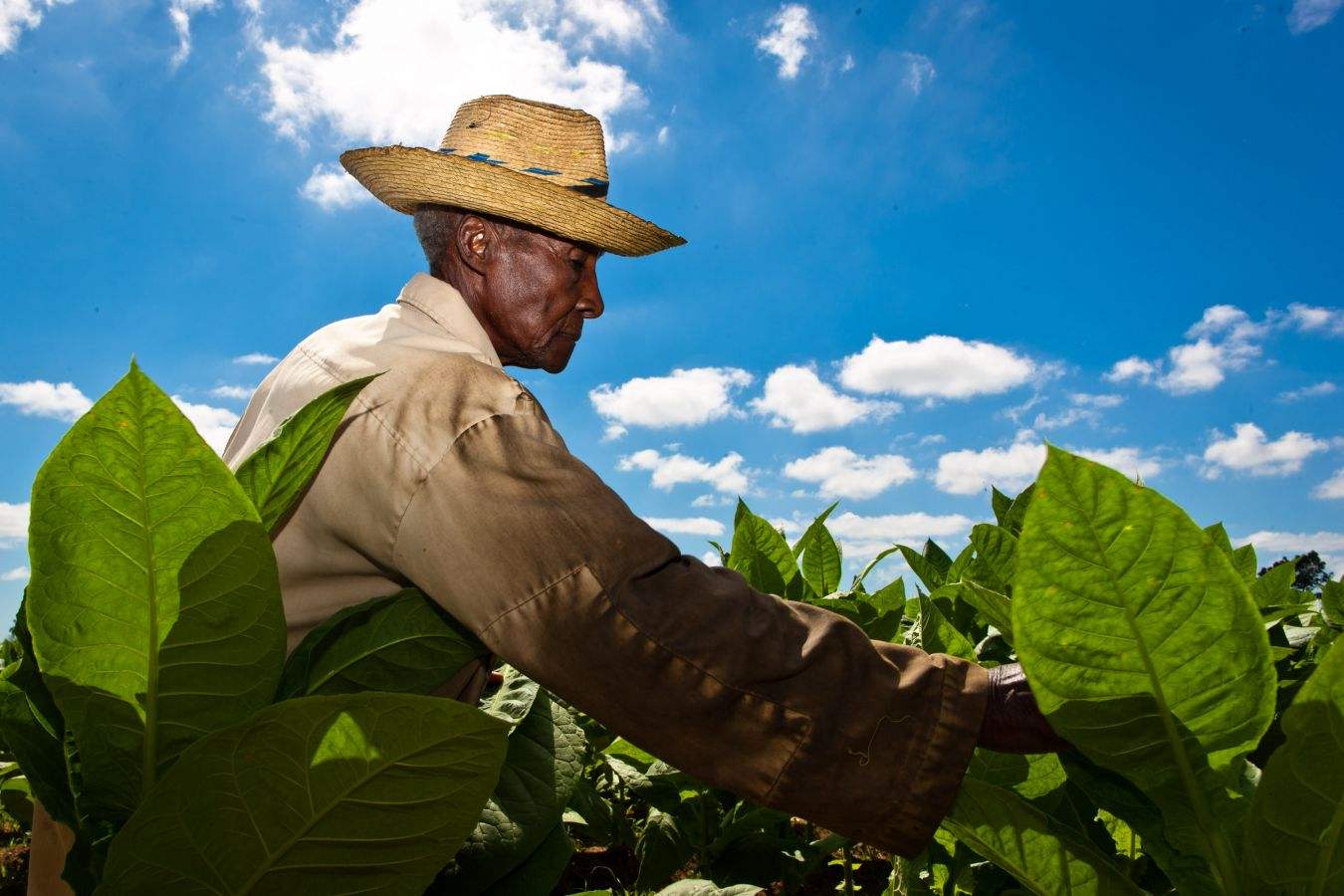
It is Tuesday afternoon and it's a hive of activity at one of the farms 60 km northwest of Harare as farm owner Paul Mattison prepares for the 2017 tobacco marketing season which begins this Wednesday.
Just a few hours before the selling season kicks off, Mattison and his managers are busy supervising the workers, some loading harvested tobacco leaves into a curing facility while others are busy grading the cured tobacco.
"I am expecting to produce 500 tonnes of tobacco this season and we have better quality crop when compared to last year. We are, however, down on yields this year due to too much rain and shortage of coal," said Mattison, one of the 195 farmers contracted by China's Tianze to grow tobacco in Zimbabwe.
Mattison has been growing tobacco under contract farming with Tianze for 10 years, and has no regrets for choosing to work with the Chinese firm.
"I love Tianze. They are absolutely brilliant. They have funded all the developments here including the tobacco barns and curing facilities," he said.
"I have done a lot of capital projects this season, spending about 220,000 U.S. dollars on buying new tractors and putting up a grading shade. This was all funded by Tianze," he added.
One of the few white farmers remaining in Zimbabwe after the land reform program, Mattison said he switched to Tianze after having worked with other companies due to Tianze's competitive financing and viable prices they offer for tobacco leaf, which is Zimbabwe's top export earner.
Tianze currently offers the best tobacco prices in Zimbabwe and its cheap money, lent at zero percent deposit, was the best ever deal for tobacco growers in the country, Mattison said.
He was lucky that just a small percentage of his crop, about five percent, was affected by hail storm this year.
He said he hopes to maintain the 170 ha of tobacco in 2018, and to further expand tobacco infrastructure at a farm that is covered under the Bilateral Investment Promotion and Protection Agreement (BIPPA) between Belgium and Zimbabwe.
He said his tobacco farming preparations were being affected by lack of storage space as all the tobacco had matured at the same time due to excessive rains, and hoped the beginning of the selling season would help alleviate the shortage of storage space at his farm.
He had already delivered 2,000 bales for sale to the contractor Tianze in Harare and hoped to pay back in full a 1.1 million U.S. dollars loan he borrowed from Tianze this season.
The 2017 tobacco auction sales begin on March 15 followed by contract sales on March 16.
Mattison's neighbor Kerry Ruzvidzo was not so lucky this season, as 60 percent of his 130 ha crop was damaged by hail storm and disease.
Tobacco output had therefore reduced by 25 percent from last year, he said.
"I am expecting 400 tonnes of tobacco, down from 500 tons last year. This is the worst year I have heard since I started growing tobacco under Tianze nine years ago," he said.
Excessive rains, hail storms and an incurable disease caused by the hail storm had seriously affected output and quality of the tobacco crop, he said.
He was also incurring extra costs hiring equipment to fix the road at his farm that had been damaged by excessive rains.
"I will not make any profit this year. I am just fighting to pay back the 1.2 million U.S. dollars I owe to Tianze and hopefully be able to get another contract with the firm next year," he said.
He said he was not expecting good prices for his spotty tobacco leaf due to its poor quality and added that he will reduce tobacco hectarage to 100 hectares next year due to poor returns this year.
Ruzvidzo said he wants to keep investing in technology in his tobacco farming venture so as to cut labor costs and improve viability.
Both Ruzvidzo and Mattison decried cash shortages in the economy, saying they had affected their ability to pay workers.
"We have resorted to paying them with plastic money but the challenge is that workers are now spending more time looking for money at the banks instead of being at work," said Mattison.
Tianze, a subsidiary of China Tobacco International, started tobacco contract farming in Zimbabwe in 2005 with the sole purpose of helping revive the country's tobacco output which had plummeted to a low of 48 million kg in 2008 following the implementation of the land reform program by government in the early 2000s.
Through its support over the years, Zimbabwe's tobacco output has rebounded and reached 217 million kg in 2014, slightly short of peak production of 231 million kg in 2001.
Tianze has managed to do this through provision of free interest loans, subsidized inputs and quality technical support, among other assistance.
Apart from contract farming, Tianze is involved in auction floor purchasing, processing, warehousing and exporting of tobacco to China. It also sources tobacco from other tobacco merchants in Zimbabwe and export it to China.
Every year, it buys and exports more than 50 percent of Zimbabwe's tobacco to China.
The number of farmers it supports in Zimbabwe has grown from one in 2005 to the current 305 with hectarage under contract rising from 20 ha to 8,720 ha.
Since inception, the company has injected 40 million dollars annually in interest free loans towards tobacco production, in addition to free technical support, training and other services to its contracted farmers.
Tobacco leaf accounts for 10 percent of Zimbabwe's Gross Domestic Product, underlining its significance to the country's economy.
The country is expecting slightly over 200 million kg of tobacco leaf in 2017 from 183 million kg worth 537 million dollars last year.
Source:Xinhua